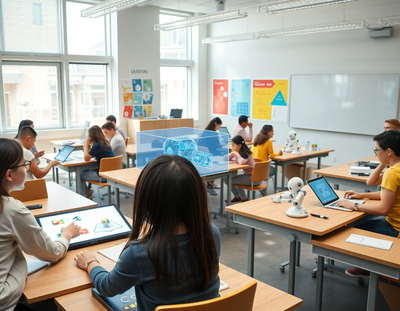Sam Altman, CEO of OpenAI, has long been vocal about the rise of artificial intelligence and its potential to surpass human cognitive abilities. In a recent podcast, he highlighted the critical need for humans to focus on qualities that AI cannot replicate, urging educators to prioritize social-emotional learning (SEL) in schools. As AI systems continue to evolve, Altman stressed that emotional intelligence, moral reasoning, and interpersonal skills will become even more valuable for students. SEL, he believes, can help students develop these uniquely human traits, enabling them to thrive alongside machines rather than compete with them. US schools are heeding this call, increasingly recognizing the value of SEL in preparing students for a future where AI dominates many cognitive tasks, but where human connection, empathy, and creativity remain irreplaceable.
The Rising Importance of SEL in Education
With AI’s growing dominance in various fields, educators are turning to SEL to ensure that students develop essential human qualities such as empathy, collaboration, and resilience. According to findings from the Collaborative for Academic, Social, and Emotional Learning (CASEL), schools across the US are increasingly incorporating SEL into their curricula. By the 2023-2024 school year, 83% of US principals reported using an SEL curriculum, up from 76% in the previous year. This shift signals a growing recognition of SEL as a vital component in preparing students for an AI-driven future.
SEL’s Role in Developing Emotional Intelligence
As AI handles tasks that traditionally required human cognitive abilities, emotional intelligence is becoming a key differentiator. Experts agree that while AI can process data and provide answers, it cannot replicate human emotions, moral reasoning, or interpersonal connections. SEL programs aim to foster emotional awareness, self-regulation, social skills, and empathy—qualities that will help students navigate both personal and professional challenges in an increasingly automated world.
Schools in states with supportive SEL policies report higher implementation of SEL practices, which in turn contribute to positive school climates and increased student interest in learning. Teachers in these schools are more likely to see their students thrive academically and socially, with SEL programs serving as a foundation for fostering meaningful human interactions.
Supporting the Whole Child
Research shows that SEL not only enhances social and emotional development but also contributes to improved academic performance. Students who receive SEL instruction are more likely to report positive experiences in school, including better engagement with their lessons and stronger relationships with peers and teachers. This holistic approach to education ensures that students are not only prepared for the academic demands of the future but are also equipped with the social and emotional tools to succeed in an AI-dominated world.
Preparing for the Future
As Altman’s warning suggests, the future workforce will require more than just technical knowledge; it will demand collaboration, adaptability, and emotional insight. By prioritizing SEL, US schools are arming students with the essential skills to outsmart AI and thrive in an ever-changing landscape. With continued policy support and funding for professional development, SEL can provide students with the competitive edge they need in an increasingly automated world.
